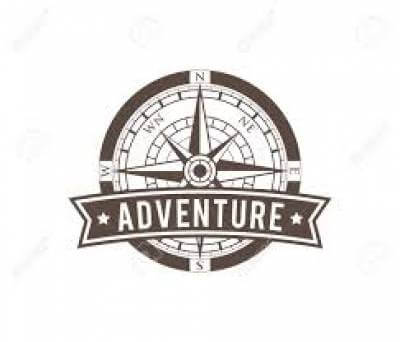Island Peak Expedition 15 Days
Island Peak Climbing is an exciting adventure that takes climbers to the summit of Island Peak, also known as Imja Tse. The peak is located in the Khumbu region of Nepal and stands at an elevation of 6,189 meters (20,305 feet). The climbing adventure provides a unique opportunity for climbers to test their skills and endurance, and to experience the thrill of climbing a Himalayan peak.
The adventure begins with a scenic flight from Kathmandu to Lukla, followed by a trek to Namche Bazaar, the gateway to the Khumbu region. The trail then leads to the village of Dingboche, where climbers spend time acclimatizing to the high altitude. The acclimatization process is crucial to prevent altitude sickness, which can be dangerous and even life-threatening.
After acclimatizing, climbers head towards Island Peak base camp, where they set up their tents and prepare for the climb. The climbing route to Island Peak includes steep ascents, technical sections, and a glacier crossing. The final ascent to the summit requires the use of crampons, ice axes, and ropes.
The Island Peak Climbing adventure is led by experienced guides who are trained in first aid and rescue techniques. The safety of the climbers is of utmost importance, and the guides ensure that the climbers are well-prepared and equipped for the climb.
During the adventure, climbers stay in teahouses or tents along the trekking route and in tents at the base camp. The food is basic but nutritious, and includes local dishes such as dal bhat and momos. The climbers need to bring their own climbing gear and equipment, including crampons, ice axes, ropes, helmets, and harnesses. The gear can be rented in Kathmandu or on the trail.
The summit day is the highlight of the adventure, and requires an early start to reach the summit before noon. The climbers need to be physically and mentally prepared for the long and strenuous climb to the top. The summit offers stunning views of the surrounding Himalayan peaks, including Lhotse, Makalu, and Ama Dablam.
The Island Peak Climbing adventure also offers a unique cultural experience, as climbers get to explore the local Sherpa villages and monasteries along the way. The Sherpa people are renowned for their mountaineering skills and their warm hospitality.
In conclusion, the Island Peak Climbing adventure is a challenging and rewarding climb that offers stunning views of the Himalayas and a unique cultural experience in Nepal. The adventure requires physical fitness, mental toughness, and a willingness to face challenges. Climbing Island Peak is a dream come true for many mountaineers, and the experience is one that will be cherished for a lifetime.
ITINERARY
Day 1 : Arrival in Kathmandu (1,350m) & transfer to hotel.
Upon arrival at Kathmandu airport, you will be greeted by a representative of the trekking company and transferred to your hotel. You can spend the day resting and exploring the city.
Day 2 : Flight to Lukla and Trek to Phakding (2,651m) Duration: 5-6 hours.
You will take an early morning flight to Lukla and start trekking to Phakding. The trail follows the Dudh Koshi river and passes through small villages and lush forests. Distance: 8km, Duration: 3-4 hours.
Day 3 : Trek to Namche Bazaar (3,440m) Duration: 6-7 hours.
Today, you will trek to Namche Bazaar, a bustling town in the Khumbu region. You will cross several suspension bridges and climb steep trails to reach Namche Bazaar. Distance: 12km, Duration: 6-7 hours.
Day 4 : Acclimatization Day in Namche Bazaar (3,440m)
Today is a rest day to acclimatize to the altitude. You can explore the town, visit the Sherpa museum, or hike to the nearby Everest View Hotel for stunning views of Mount Everest and other Himalayan peaks.
Day 5 : Trek from Namche to Pangboche (3,930) Duration: 5-6 hours.
Today we head off to Tengboche and along the trail have our first views of several enormous peaks: Ama Dablam (6812m), Lhotse Shar (8393m), Taboche (6495m), Khangtega (6782m), and Thamserku (6623m). As we continue we come to an Army barrack at Phunke Tenga (22335m) and arrive at Tengboche where we stop for lunch. After lunch we visit the famous Tibetan Tengboche Buddhist monastery and later continue on the trail and pass the Sagarmatha National park office at Debouche. Continuing we finally reach Pangboche and visit the Gompa (temple). Tonight we stay here.
Day 6 : Trek from Pangboche to Thukla (4,620m) Duration: 5-6 hours.
Today we head off up stone steps until we reach Pheriche and later Thukla where we stay the night.
Day 7 : Trek from Thukla to Everest Base Camp (5,170m) and back to Gora Shep (5,180m) Duration: 6-7 hours.
Today we follow the trail and stop for lunch at Gorakshep. After lunch we continue until we reach Everest Base Camp (5364) where you have a spectacular view of Nuptse. After stopping for lunch we trek toward EBC following a trail alongside the Khumbu ice sheet. The trek around the ice sheet takes around 1.5 hours before crossing the glacier and into the region of EBC (5360m). At base camp you will have an opportunity to meet other climbers and share stories. From EBC you will have views of the Khumbu ice sheet and glacier with its frightening and dangerous crevices. We will then descend to Gorakshep where we stay the night.
Day 8 : Hike to Kalapatthar (5,550m) at sunrise & trek to Lobuche (4,900 m) Duration: 7-9 hours.
At around 4 a.m. in the pre-dawn darkness and cold temperatures (-10 to -14 C) we begin our trek. It is common for there to be cold winds at this altitude. Towering peaks, such as Khumbutse, Lingtren, and Changtse loom before us to the east as Everest comes into view. Not until we reach Kala Patthar (5550m) do we get a 360 degree up-close and bird’s eye view of Mount Everest. After taking in the panoramic views and madly clicking cameras we will return back to Lobuchefor a good night's rest. Breakfast, lunch & dinner included.
Day 9 : Trek from Lobuche to Kongma La (5,535m/18,159ft) to Chhukung (4,730m/15,518ft) Duration: 7-8 hours.
Once again, after breakfast, we trek via Khumbu through ice masses to Kongma La Base Camp at (5,000m/16,404ft). This section of our ascent to Kongma La pass is probably the most difficult part of our trek. Along the way there are many rock cairns draped in prayer flags marking the pass. On our decent we trek through Imja Khola where water from the slopes of Everest collect. After passing through this valley we descend to Chhukung a quaint summer settlement. After reaching Chhukung your guide will check his instruments and our equipment before our final climb to Chhukung. Instead of taking the route through Kongma La pass we may take an alternative route via Dingboche to Chhukung. Meals - breakfast, lunch & dinner.
Day 10 : Trek to Island Peak base camp (5,200m/17,060ft) Duration: 4-5 hours.
Although Island peak does not require technical expertise, it does however require strength and stamina. It does however require some basic skills and how to avoid mishaps. It is essential that we reach the summit before lunch, as in the afternoon it can be extremely windy. The path climbs hundreds of meters from the bottom camp before facing a sharp incline initially on a sandy trail before turning to grass, and finally over boulders. The path eventually narrows before entering a steep rock vale (narrow channel of rock). We finally, after many steps across and through the vale emerge on the other side Your guide, for safety reasons, may fix a rope to each climber to assist in climbing the final snowy slope to the ridge at the summit. The rope may often extend to 350m depending on the season and danger of crevices. Some of these crevices may be 2 to 3 meters across requiring the use of ladders. Once at the summit it is time to take out your camera and capture the magnificent views and get your breath back!. We will then descent to Island Peak Base Camp, and with your guides, will celebrate our success. Meals - breakfast, lunch & dinner.
Day 11 : Summit Isand Peak (6189m/20,305ft) & trek down To Dingboche: Duration: 10-12 hours.
Today is the summit day, and you will start early in the morning to reach the summit of Island Peak. The climb takes around 10-12 hours and involves steep ascents over rocky terrain, which requires the use of ropes and crampons. Upon reaching the summit, you can enjoy the stunning views of the surrounding peaks and glaciers. After the successful summit climb, you will trek back to Dingboche, a small village located at an altitude of 4400 meters.
Day 12 : Trek to Namche Bazaar (3,440m) Duration: 7-9 hours.
You will trek back to Namche Bazaar, passing through Dingboche and Tengboche. The trail offers great views of the Himalayas and passes through beautiful villages. Duration: 7-8 hours.
Day 13 : Trek from Namche Bazaar to Lukla (2,800m/9,186ft) Duration: 6-7 hours.
The rocky path down is steep and it is advised to be cautious crossing this rocky landscape. We eventually cross the suspension bridges over the rapid flowing Dudh Koshi and its tributaries, where the path becomes flatter and easier to negotiate. After our arrival in Lukla we can stretch our aching legs and blissfully recall the exhilarating experiences of the last few weeks. Meals - breakfast, lunch & dinner.
Day 14 : Flight to Kathmandu (1,350m) & transfer to hotel.
You will trek to Lukla and take a flight back to Kathmandu. Upon arrival, you will be transferred to your hotel. You can spend the rest of the day exploring Kathmandu or shopping for souvenirs.
Day 15 : Transfer to Tribhuvan International Airport.
Your adventure comes to an end today – but your memories will last a lifetime! Our company representative will take you to the airport approximately 3 hours before your scheduled flight. On your way home you'll have plenty of time to plan your nearest next adventure and explore the most magnificent mountains of Nepal.
SERVICES
Costs included in your package.
- Airport picks up and transports by private Car/Jeep.
- Two night’s standard twin sharing Hotel in Kathmandu with breakfast.
- Three meals a day (Breakfast, lunch, and dinner) during the trek.
- Fresh fruit every evening after dinner.
- Trekking Lodge (Tea House) during the trek and tent camp accommodation during climbing session.
- All necessary paperwork including Sagarmatha National Park Entry Permit & Khumbu Pasang Lhamu Rural Municipality fees.
- Kathmandu-Lukla-Kathmandu (Ramechhap -Lukla- Ramechhap) flight with private airport transfer and domestic airport tax.
- A highly experienced, helpful, knowledgeable, friendly, English speaking well trained, Government license holder guide with all his salary, food, drinks, accommodation, transport and insurance.
- Climbing permit of Island Peak.
- Strong, helpful Sherpa porters with proper safety equipment and walking equipment, his salary, food, accommodation, and insurance (one porter for two people).
- Comprehensive medical supplies (first aid kit will be available).
- Arrangement of emergency helicopter service (paid by your Travel Insurance Company).
- Use of sleeping bag, down jacket, duffel bag and walking poles (if you don’t have your own, to be returned after trip completed).
- Sherpa Expedition and Trekking T-shirt
- Government taxes and official expenses.
- Trip achievement certificate after successful trip completion.
- Oxygen meter to check your pulse and oxygen saturation and heart rate twice daily (Very useful to check Altitude Mountain Sickness(AMS) symptoms) which will ensure your health during the trek.
- Assistant guide for groups of 8 or more people.
Costs Exclude
- Meals whilst you are in Kathmandu - lunch, and dinner.
- Nepal entry visa fee (easy to obtain the visa on arrival at Tribhuvan International Airport – Kathmandu). $30 USD for 15-day, $50 USD for 30 Days, and $125 USD for 90 Days visa.
- Personal travel and medical insurance.
- International airfare.
- Your personal expenses.
- All the alcoholic and nonalcoholic, soup, tea, coffee, hot chocolate, cocoa, mineral water, extra food, cold and hot drinks on trek ( i.e. those you choose to purchase along the way and during evenings in the tea houses)
- All desserts & sweet things like chocolate, cake, pie, pudding.
- Hot shower and battery charging at the tea houses.
- Tips for the guide, porter, and driver (tipping is expected)
- Excess baggage of more than 10 kg for Lukla flight.
- NOTE: If you return earlier from the trek due to sickness or any problem, the money you paid for the flight, hotel, mountain room, food, etc. is nonrefundable, and you will need to bear the expenses for the hotel, food, etc. in Kathmandu yourself.
EQUIPMENTS
You will be carrying all of your gear and share some of the cluster gear. Keeping your pack light is important, so choose light-weight clothing and equipment. Be sure to have a range of clothing suitable for all conditions. Sudden change of weather may require layering of clothing. Three layers will meet your needs. Avoid cotton or fabrics that do not maintain heat when cold. Comfortable durable wool (or proven fabrics) that breathe and expel sweat lends itself to an additional pleasant experience!'
We will offer complimentary water and a windproof duffle that you'll use on the trek - carried by porters. The duffle is yours to keep once at the end of the trek. You can safely leave your bag, together with your non-trekking requirements, at our office in Katmandu and collect them upon your return.
All equipment, such as base camp tents, room accessories, climbing rope, ice screws, snow bar and ice hammer is provided by Sherpa Expedition & Trekking.
Upper Body:
- Base Layers: Moisture-wicking and quick-drying shirts and thermal tops.
- Insulation Layers: Fleece or down jackets to provide warmth.
- Waterproof Shell Jacket: A durable and breathable jacket to protect against wind and rain.
- Softshell Jacket: A lightweight and water-resistant jacket for added protection.
- Climbing Harness: A comfortable harness to secure yourself to the rope.
- Helmet: A strong and well-fitting helmet to protect your head from falling objects.
- Gloves: A combination of lightweight liner gloves and insulated gloves or mittens for warmth and dexterity.
- Buff or Neck Gaiter: To protect your neck and face from cold and wind.
- Sunglasses: Polarized and UV-protected sunglasses to shield your eyes from the sun and snow glare.
- Goggles: Ski or mountaineering goggles for added eye protection in extreme weather conditions.
Lower Body:
- Base Layers: Moisture-wicking and quick-drying thermal bottoms.
- Insulation Layers: Fleece or insulated pants for added warmth.
- Waterproof Shell Pants: Durable and breathable pants to protect against wind, rain, and snow.
- Softshell Pants: Lightweight and water-resistant pants for added protection.
- Mountaineering Boots: Sturdy and insulated boots designed for snow and ice.
- Crampons: Attachable spikes that provide traction on icy terrain.
- Gaiters: Waterproof and breathable gaiters to keep snow out of your boots.
- Socks: A combination of moisture-wicking liner socks and thick, warm mountaineering socks.
Other Essential Items:
- Backpack: A spacious and sturdy backpack to carry your climbing gear and personal belongings.
- Sleeping Bag: A warm and lightweight sleeping bag that can withstand sub-zero temperatures.
- Trekking Poles: Adjustable trekking poles for added stability and support.
- Headlamp: Essential for climbing in low-light or dark conditions.
- Water Bottles: Insulated water bottles to keep your water from freezing.
- Sunscreen: High SPF sunscreen to protect your skin from the strong sun at high altitudes.
- First Aid Kit: A comprehensive first aid kit with essential medications and supplies.
- Climbing Snacks: Energy bars, nuts, and other lightweight snacks for quick fuel during the climb.
It is important to invest in high-quality gear and ensure that everything fits properly and is in good condition. Additionally, consult with experienced climbers or a professional guide to ensure you have all the necessary gear and receive proper training on how to use it effectively and safely.
GOOD TO KNOW
If you are considering climbing Island Peak, here are some important things to know:
1. Island Peak, also known as Imja Tse, is located in the Everest region of Nepal. It stands at an elevation of 6,189 meters (20,305 feet) and is a popular climbing destination for mountaineers.
2. Prior climbing experience is recommended as Island Peak is a technical climb. Basic mountaineering skills such as using crampons, ice axe, and rope techniques are necessary.
3. Acclimatization is crucial due to the high altitude. It is advisable to spend a few days in the Everest region, acclimatizing and trekking to higher altitudes before attempting the climb.
4. A climbing permit is required to climb Island Peak. This can be obtained through a registered trekking agency in Nepal. Make sure to check the latest permit regulations and fees.
5. Hiring a local guide or joining a guided expedition is highly recommended. They have the expertise, knowledge of the route, and can provide support and safety during the climb.
6. The best time to climb Island Peak is during the pre-monsoon (spring) season (April to May) and post-monsoon (autumn) season (September to November). These months generally have more stable weather conditions and clear views.
7. Proper gear and equipment are essential for a safe and successful climb. This includes mountaineering boots, crampons, ice axe, climbing harness, helmet, layers of warm clothing, gloves, and other necessary climbing gear.
8. Physical fitness and endurance are important for climbing Island Peak. Regular exercise, cardiovascular training, and strength-building activities are recommended to prepare your body for the physical demands of the climb.
9. It is important to be aware of altitude sickness and its symptoms. Take necessary precautions, such as proper acclimatization, staying hydrated, and following the guidance of your guide.
10. Respect the local culture and environment. Island Peak is located in Sagarmatha National Park, a UNESCO World Heritage Site. Follow the Leave No Trace principles, adhere to local customs, and be mindful of the fragile mountain ecosystem.
Always prioritize safety and consult with experienced climbers or professional guides for further information and guidance specific to your Island Peak climbing expedition.
MAP
PHOTOS/Videos
Departures
Select a departure month
Fill out the form below and a Travel Expert will reach out to create your perfect tour.
FAQS
How difficult is it to climb Island Peak?
Island Peak is considered a moderately difficult climb. It requires basic mountaineering skills, including using crampons, ice axe, and rope techniques. Prior climbing experience and physical fitness are recommended.
Do I need a climbing permit for Island Peak?
Yes, a climbing permit is required to climb Island Peak. It can be obtained through a registered trekking agency in Nepal. The permit fees vary depending on the season and nationality.
Can I climb Island Peak without a guide?
While it is possible to climb Island Peak without a guide, it is highly recommended to hire a local guide or join a guided expedition. They have the knowledge, experience, and can ensure your safety during the climb.
What is the best time to climb Island Peak?
The best time to climb Island Peak is during the pre-monsoon (spring) season (April to May) and post-monsoon (autumn) season (September to November). These months generally have more stable weather conditions and clear views.
How long does it take to climb Island Peak?
The duration of the climb can vary depending on several factors, including your fitness level and acclimatization. Typically, it takes around 3 weeks for a complete Island Peak climbing expedition, including trekking to and from the base camp.
What permits do I need for climbing Island Peak?
In addition to the climbing permit, you also need a Sagarmatha National Park entry permit and a TIMS (Trekkers' Information Management System) card. These permits can be obtained through the trekking agency.
Is altitude sickness a concern on Island Peak?
Yes, altitude sickness is a concern when climbing Island Peak due to the high elevation. Proper acclimatization, staying hydrated, and following the guidance of your guide are essential to minimize the risk.
What gear do I need for climbing Island Peak?
You will need mountaineering boots, crampons, ice axe, climbing harness, helmet, layers of warm clothing, gloves, and other necessary climbing gear. It is important to have proper gear and equipment for a safe and successful climb.
Is previous climbing experience required for Island Peak?
While previous climbing experience is not mandatory, it is highly recommended to have some basic mountaineering skills and experience with high-altitude trekking to ensure a safer and more enjoyable climb.
Can I rent climbing gear in Nepal?
Yes, you can rent climbing gear in Nepal. Kathmandu and Lukla are common places to find gear rental shops. However, it is advisable to bring your own personal gear and rent only the equipment you don't have or can't bring with you.
Latest Traveller’s Reviews
Travel experiences of our clients who recently returned from their trips.
100%
Based On 23 Reviews
Peter Johansson
Australia
September 12, 2024
Wonderful Trek and Team Spirit
The trek to Island Peak with Sherpa Expedition Teams was a wonderful experience. The guides were knowledgeable and passionate about the mountains. Their support made all the difference, especially during the challenging parts of the climb. The group dynamic was fantastic, and we bonded over shared challenges and triumphs. I can’t wait to book another trek with them!
Ngagne Diambang
Canada
August 29, 2024
Perfectly Organized Trek
Sherpa Expedition Teams made my Island Peak climbing trek unforgettable! Everything was perfectly organized, from the logistics to the accommodations. Our guides were very experienced and attentive, providing invaluable support. The breathtaking scenery kept us motivated throughout the climb. I felt safe and well-prepared, thanks to their expertise. An incredible adventure I will never forget!
Xalid Memmedov
Netherlands
August 2, 2024
Highly Recommended Team
Sherpa Expedition Teams offered a fantastic climbing experience on Island Peak! The organization was top-notch, with everything running smoothly from start to finish. Our guides were experienced and friendly, always ready to help. The trek was challenging but immensely rewarding, with breathtaking views. I would highly recommend this team for anyone looking to embark on a trekking adventure!
People Considering This Package Right Now Check availability
























